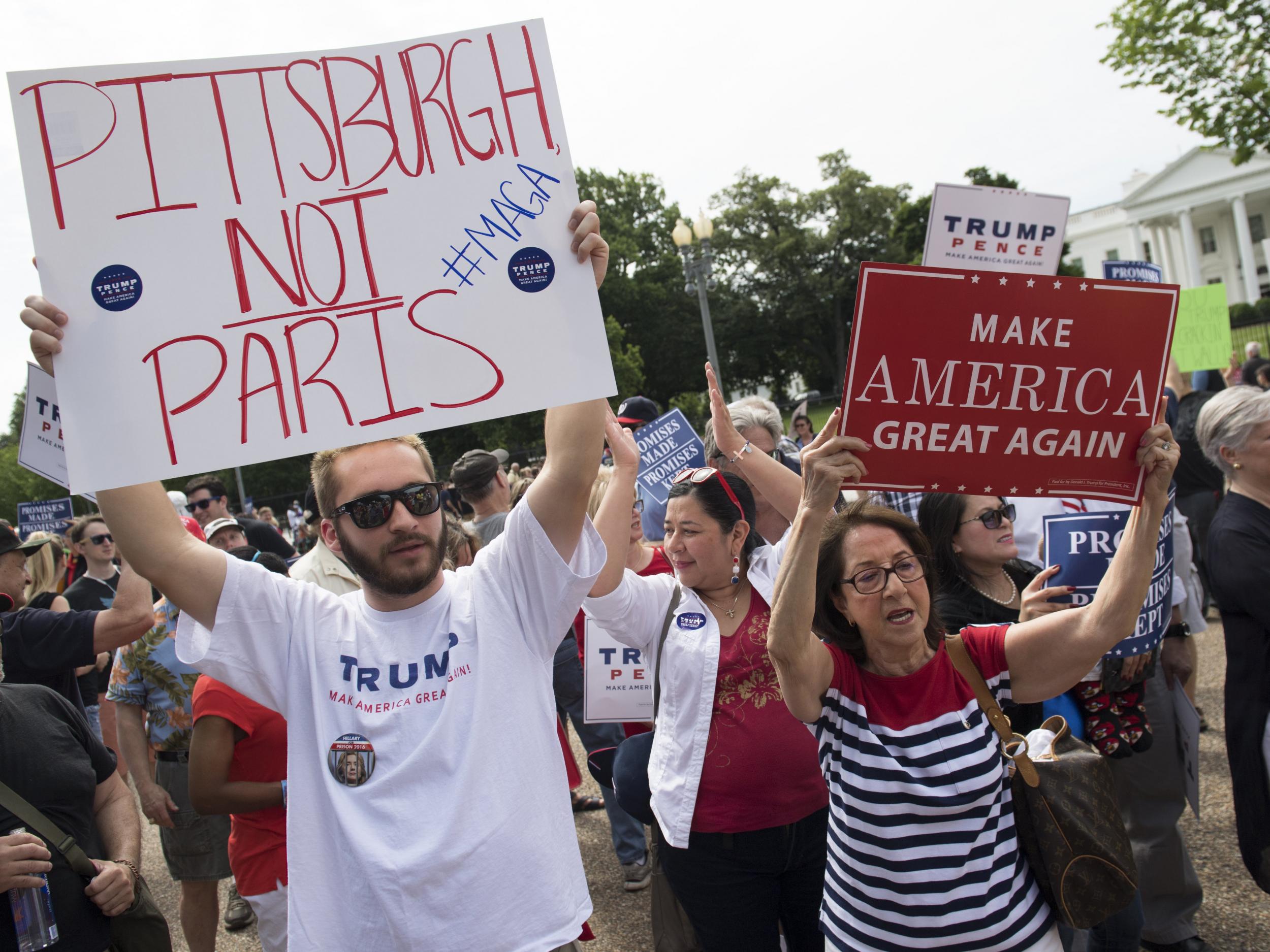Americans who believe in conspiracy theories about 9/11 and Princess Diana's death more likely to doubt climate change
Scientists inspired by Donald Trump tweet investigate roots of scepticism and connection with political views

Your support helps us to tell the story
From reproductive rights to climate change to Big Tech, The Independent is on the ground when the story is developing. Whether it's investigating the financials of Elon Musk's pro-Trump PAC or producing our latest documentary, 'The A Word', which shines a light on the American women fighting for reproductive rights, we know how important it is to parse out the facts from the messaging.
At such a critical moment in US history, we need reporters on the ground. Your donation allows us to keep sending journalists to speak to both sides of the story.
The Independent is trusted by Americans across the entire political spectrum. And unlike many other quality news outlets, we choose not to lock Americans out of our reporting and analysis with paywalls. We believe quality journalism should be available to everyone, paid for by those who can afford it.
Your support makes all the difference.Belief in outlandish conspiracy theories goes hand in hand with rejection of climate change among Americans, according to a new study.
Around 97 per cent of scientists are thought to support the idea that climate change is real and primarily caused by humans.
Nevertheless, opposition to climate change has entered the mainstream in some nations, with the US perhaps the most prominent example.
Under Donald Trump, the US has been withdrawn from the Paris climate agreement, and the head of the Environmental Protection Agency, Scott Pruitt, is known to be a climate sceptic.
Professor Matthew Hornsey and his colleagues at the University Queensland set out to investigate the roots of this phenomenon in the US and elsewhere by looking at the relationships between belief in conspiracy theories, conservative views and climate scepticism.
They wanted to find out if these links did indeed exist within the US population, and whether a similar phenomenon was found in other countries.
To do this, they determined people’s endorsement of four internationally recognised conspiracy theories on the subjects of the 9/11 terrorist attacks, the existence of a New World Order and the deaths of John F Kennedy and Princess Diana.
Theories based on the idea that 9/11 was an “inside job” are popular around the world, and the concept of a New World Order – a global elite that seeks to take over the world – exists in many forms.
The deaths of Kennedy and Princess Diana have also inspired a wealth of conspiracy theories, with many suggesting the official accounts of both events are untrue.
As a psychologist, Professor Hornsey was drawn to investigate this topic by the current US president’s apparent endorsement of conspiracy theories surrounding the existence of climate change.
"The inspiration for this question was Donald Trump's tweet saying that climate science was a hoax created by the Chinese to make US manufacturing uncompetitive," Professor Hornsey said.
Mr Trump has since expressed further doubts over the existence of climate change, explaining in an interview that in his view the polar ice caps were not melting but instead “at a record level”.
In their paper, Professor Hornsey and his colleagues explain there are a number of conspiracy theories related to climate science.
The most prominent of these is that climate change is a hoax “perpetrated by scientists who see it as an opportunity to wield influence, secure funding or act out a green/Marxist agenda”.
While such ideas can exist in isolation, they can also emerge from a wider “conspiracist” world view, in which it is perfectly normal for large scale hoaxes to take place in secrecy.
To determine what was at the root of people’s rejection of climate science, the psychologists surveyed 5,323 people across 25 countries to determine their worldviews.
"We found that the more Americans believed conspiracies generally, the more they also thought that climate change was a hoax,” said Professor Hornsey.
"This relationship was not found in the vast majority of countries."
The study, published in the journal Nature Climate Change, also challenges the notion that conservatism naturally leads to rejection of climate science.
"I was intrigued why, of the 17 candidates who campaigned to be the Republican nominee for the 2016 US presidential campaign, many were openly sceptical of climate science," said Professor Hornsey.
"This mainstream rejection of climate science among a major political party was not evident in other countries, which raised the question: is the tendency for conservatives to be more climate sceptical a global phenomenon, or something that's distinctively American?”
Their findings revealed that while it may not be a totally American phenomenon, it is not far off.
In around three quarters of the countries surveyed, conservatives showed no more scepticism of climate change than other people.
Professor Hornsey noted that it was the countries with high levels of carbon emissions, such as the US and Australia, which showed stronger links between conservatism and climate science rejection.
"One possible reason is that conservatives in countries with high carbon emissions have more of a vested interest in rejecting climate science, due to the fossil fuel industry's investment in that country,” he said.
While the results from these nations do not seem particularly positive, the researchers suggest there is cause for hope.
Their results imply there is nothing inherent within a conservative worldview – or even a tendency to believe in conspiracy theories – that makes someone reject the overwhelming scientific consensus on climate change.
This means that for the majority of countries people are likely to judge climate science on its own merits, rather than based on their individual ideologies.
"These results are encouraging for climate change mitigation efforts globally,” said Professor Hornsey.
Join our commenting forum
Join thought-provoking conversations, follow other Independent readers and see their replies
Comments